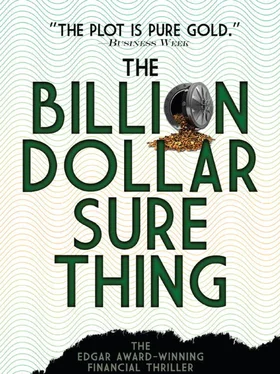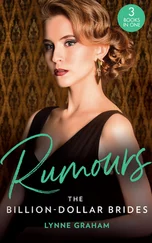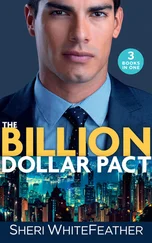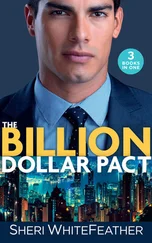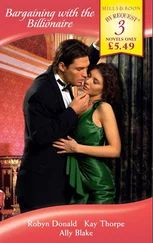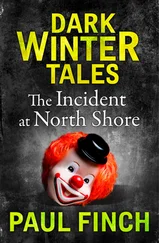Surprisingly, the diner was full of gayly chattering people. The contrast with the dismal hordes which had been plodding through the station only minutes ago could hardly have been greater. And then Stanley noticed why. They were almost all young Americans, full of zest and jokes even at this hour. The atmosphere made Stanley feel good, and suddenly he was touched with a bit of homesickness.
Minutes later a steaming canister of coffee arrived, accompanied by a basket of superbly fresh croissants. Stanley took his morning copy of the Paris Herald Tribune out of his coat pocket, and settled down to the first breakfast he had ever had on a train.
The front page of the Tribune was full of the monetary events of the past twenty-four hours. The wild gyrations of both the gold and dollar prices in the international markets were featured in a black headline running completely across the front page. The dollar, which on Wednesday had seemed on the edge of collapse, had made a remarkable recovery on Thursday morning. Simultaneously, the gold price had gone through the biggest one-shot fall in the history of the metal. But by late afternoon, the speculation seemed to have started all over again. The commentators all agreed that Friday morning, this morning, would tip the scales one way or the other. And all eyes were on Switzerland, since that was where the speculators were.
Stanley’s face was wreathed in smiles as he took all this in. He deliberately read slowly, to get maximum satisfaction out of every written line. He asked for a second pot of coffee and even ordered a cigar. He did that maybe twice a year. Almost without notice the diner suddenly began to empty. Rosen glanced at his watch and hurried back to his compartment, lurching badly in the process.
At eight forty-four the train arrived in Basel. Rosen was the last to leave his car. Two men immediately approached him.
“Stanley Rosen?”
“Yes.”
“You are under arrest. Please make no trouble, otherwise we will have to put handcuffs on you.”
He was taken firmly under each arm. The man on his left grabbed his suitcase. They jostled him down the stairs, then up a ramp into a waiting black car. A Volkswagen. The suitcase was thrown into the front seat. Rosen was pushed into the back seat and joined by one of the men. Neither spoke a word. The car pulled away with the usual loud VW whine. Rosen, his face the colour of ashes and both hands and legs trembling beyond control, finally spoke. “What’s this all about?”
No answer. Both men, the driver and the somewhat smaller man beside him, looked straight ahead. The car soon moved out of the main roads into a series of winding, narrow, medieval streets. After three minutes they passed through a massive gateway, bordering on a tower with a large golden-faced clock. Two uniformed and armed police saluted as the car moved through. They stopped. Rosen was pulled out, this time roughly, and pushed through a door leading into a long grey building. He was led up two flights of stairs into a large rather barren office and given a chair.
“Sit down, and empty all of your pockets.” Rosen did as he was told.
The suitcase was placed next to a desk facing him. Suddenly two men entered the room, both well-dressed and well-shaven. The others left. One of the men sat down behind the massive desk. It did not have a piece of paper or a speck of dust on it. His colleague remained standing by the doorway.
“Cigarette, Mr. Rosen?”
The question suddenly struck Stanley as the final touch to a situation which was absurd beyond belief, for he was still clutching his cigar, long since dead, in his left hand. It was moist with perspiration.
“No,” said Stanley. It was barely audible.
“My name is Dr. Weckerlin. I am the chief prosecuting attorney of the canton of Basel-Stadt. We know all about you and I can only suggest that you cooperate to the fullest extent. It will only be in your interest to do so.”
Finally Stanley calmed himself sufficiently to speak again.
“I would like to make a phone call.”
“I’m sorry, that will not be possible.”
“I want to consult a lawyer, immediately.”
“That will also not be possible until we say so.”
“Then I insist on being able to speak to the American consulate.”
“In due course, Mr. Rosen. I think from the very outset you must realize that you are not in the United States. Our laws vary quite considerably from yours.”
“Don’t I have any rights, for God’s sake? I thought this was a civilized country!” Stanley shouted, for now he was full of anger and fear to a degree never before experienced in his life.
“Until we are certain that there is no danger of collusion between you and any other parties, you will be held in the fashion we consider proper.”
“And what about habeas corpus?”
“This concept is not part of the Swiss legal code. Mr. Rosen, I think that the best thing for you to do is to settle down now and tell us the truth.”
“About what, for God’s sake?” replied Stanley.
The man who had been standing beside the doorway suddenly moved. He picked up Rosen’s suitcase and laid it on the desk.
“Is this the key?” he asked, pointing to one of those on the chain which Rosen had deposited on the desk.
“Yes.”
The suitcase was opened, clothes thrown aside. The two Swiss suddenly glanced at each other.
“Stand up,” said Weckerlin. Rosen did not respond.
“When he says stand up, then you stand up,” said the other man, and yanked him to his feet. Then he grabbed Rosen by the back of the collar and pushed his head into the suitcase.
“This is your suitcase, isn’t it?”
“Yes,” replied Rosen weakly, as he crouched over the suitcase, firmly in the grip of the man beside him.
“And what do you see at the bottom of your suitcase?”
“A red dossier. But I’ve never seen it before in my life.”
“Come now, Mr. Rosen,” replied Weckerlin, motioning to his colleague to release the American back into his chair. “That sort of nonsense will get you nowhere.”
“I tell you I’ve never seen that dossier in my life.”
“Fine, Mr. Rosen, if that’s the way you want to play it. I’m afraid that, in that case, we’re going to be spending a lot of time together in the next days and weeks. Would you like that?”
No answer.
Weckerlin suddenly produced a brown folder and opened it.
“You were born in Brooklyn, New York, on January 17, 1929. Your full name is Stanley Salim Rosen. Your father’s name was David, your mother’s Sarah, née Stein. Right so far?”
Still no answer.
“You are a Jew. Is that correct?”
“What in God’s name has that got to do with this?”
“Nothing in particular. You are a Jew, aren’t you?”
“Is that against the law in Switzerland?”
“No. We have no prejudices here.”
“Well, that’s nice to hear. Yes, I am a Jew.”
“Good. It seems we are finally making progress. Would you care for a cup of coffee, Mr. Rosen?”
“No.”
“As you like. By the way, we will require your tie. Please take it off.”
He took it off.
“And your cuff links. And watch.”
He took them off.
“What prompted you to buy $200 million worth of gold through the General Bank of Switzerland this week, Mr. Rosen?”
A stunned silence.
“I asked you a question.”
“And I will give you an answer. What I do with the General Bank of Switzerland or any other bank in this country is none of your business. I assume you have heard of the bank secrecy law.” Stanley was slowly regaining a bit of form.
“You deny it, then?”
“I think you heard me.”
Weckerlin picked up the telephone. “Give me Dr. Walter Hofer at the General Bank of Switzerland in Zurich. I’ll wait.”
Читать дальше
